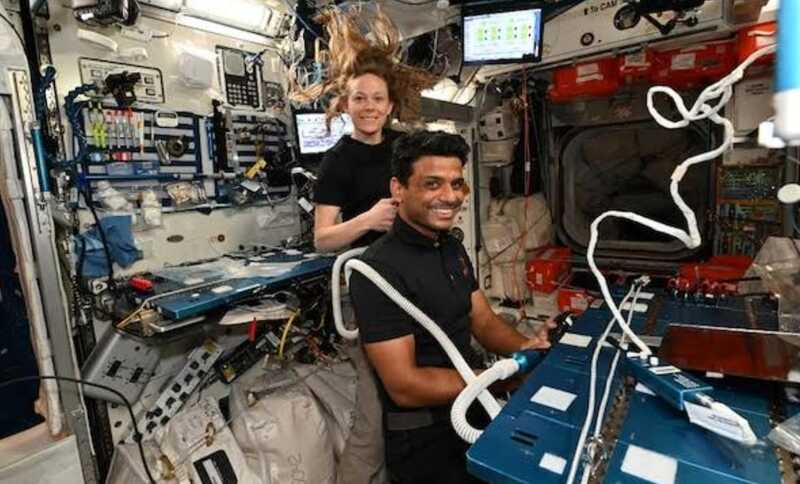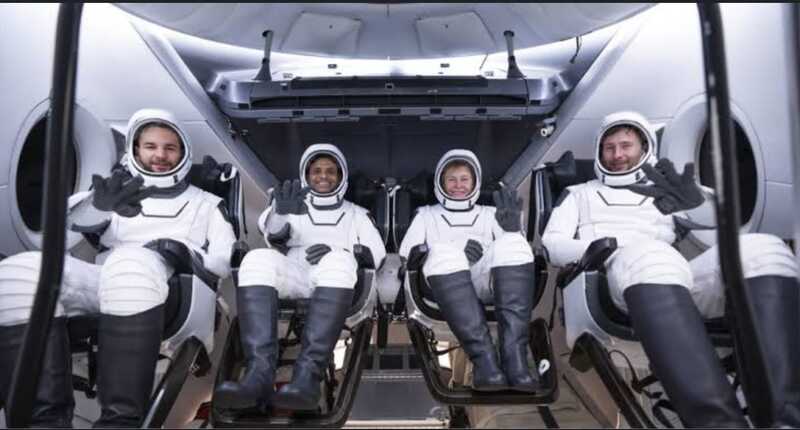Article Today, Florida: Group Captain Shubhanshu Shukla of the Indian Air Force returned to Earth on Tuesday after leading a pioneering research mission aboard the International Space Station (ISS). His 18-day journey covered over 1.22 crore kilometers, completing 288 orbits around the Earth. The mission marked a milestone for Indian space science, especially in medicine, agriculture, and biotechnology.
18 Days, 60 Experiments, and a Record
The crew conducted 60 critical scientific experiments during their stay in microgravity. Shukla, representing ISRO, led seven experiments himself. These studies targeted human health, advanced materials, agriculture, and future space technologies. The team explored how human organs and biological systems behave in weightless conditions.
Microgravity Offers New Avenues for Health Research
One of the key focus areas was understanding how zero gravity affects human physiology. The mission investigated changes in muscles, bones, the cardiovascular system, and immunity. Researchers also studied digestion in space and created educational content for Indian students. Importantly, the team explored new therapeutic approaches for diabetes and cancer in space conditions.
Mental Health in Space Explored Creatively
To study psychological well-being in space, Shukla conducted unique trials using floating water bubbles to simulate calm environments. These tests aimed to understand how microgravity affects the mental state of astronauts. The experiments will contribute to safer long-term human space missions.
A Leap Forward for Agricultural Research
Shukla’s team also explored the effects of microgravity on agriculture. ISRO-developed seeds from six crop types were tested for germination, genetic behavior, and interaction with microbes. The results may improve future food production systems in space and on Earth. The mission also cultivated microalgae to assess its role in oxygen generation and biofuel production.
Survival of Extremophiles Put to Test
Another experiment involved Tardigrades—microscopic organisms known for surviving extreme conditions. Scientists studied how these life forms behave in the space environment. The findings may lead to breakthroughs in biotechnology and genetic resilience research.

A First for Indian Space: Haircut in Orbit
In a lighter yet historic moment, Shubhanshu Shukla became the first Indian to receive a haircut in space. American astronaut Nicole Ayers trimmed his hair aboard the ISS, and the video quickly went viral. This moment added a human touch to an otherwise intense scientific mission.
Public Engagement Adds to Impact
During his stay at the ISS, Shukla also interacted with Indian students and Prime Minister Narendra Modi through live communication. These engagements sparked enthusiasm among youth for space science and research careers. The outreach component proved vital in connecting India’s next generation with its growing space ambitions.
Why Space Was Crucial for These Experiments
Many of the experiments were only possible in space due to the absence of gravity and atmosphere. On Earth, gravity interferes with molecular processes like protein crystallization. In microgravity, researchers can produce purer crystals essential for drug development. This setting provided unparalleled precision and insights not achievable in terrestrial labs.
A Mission with Lasting Scientific Value
Shubhanshu Shukla’s space mission may redefine India’s role in global scientific research. From medicine to agriculture, the findings will aid innovation and policy. The mission has laid a foundation for future collaborations and explorations—both on Earth and beyond.



